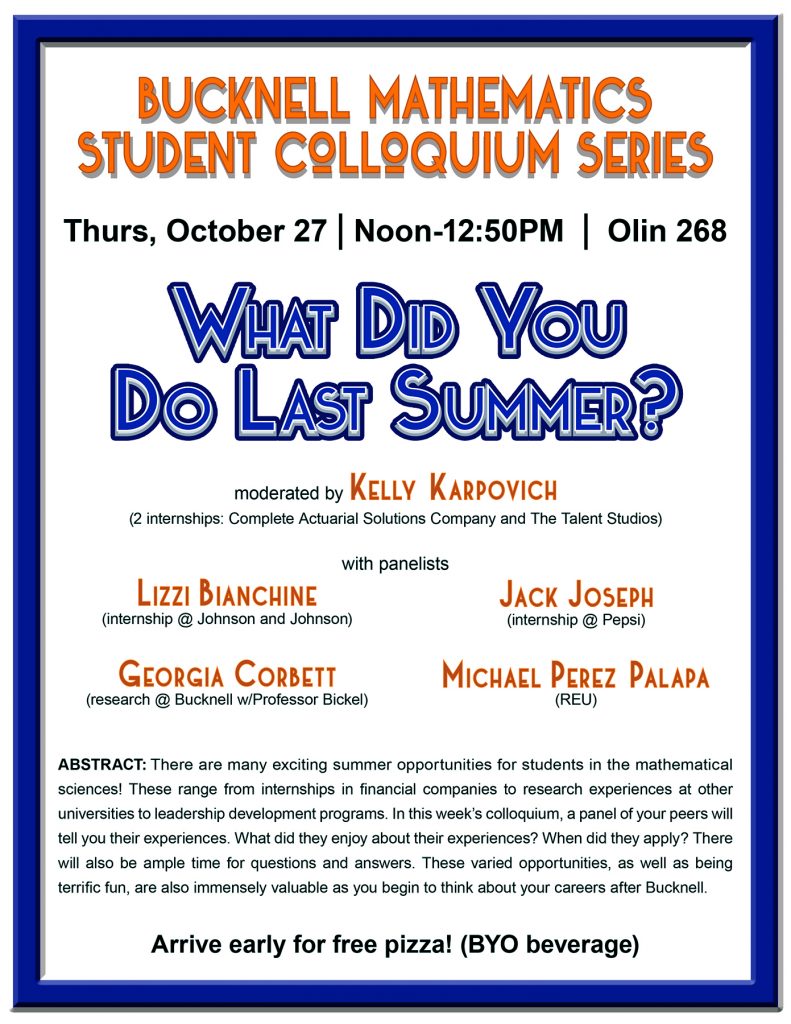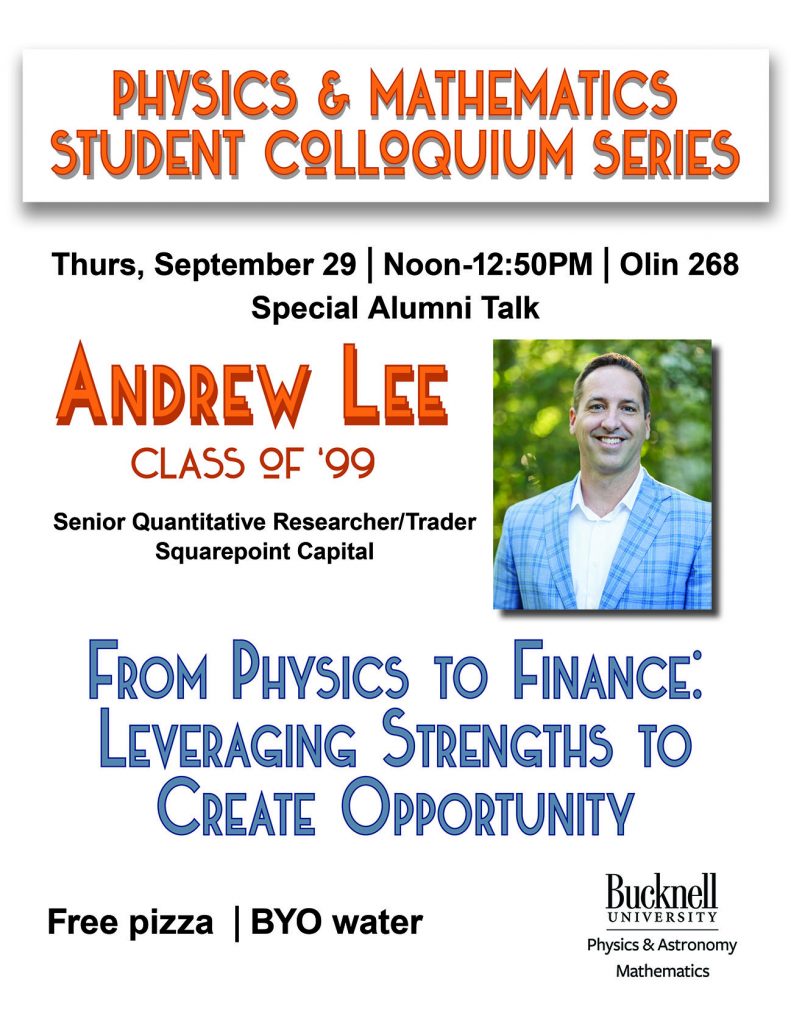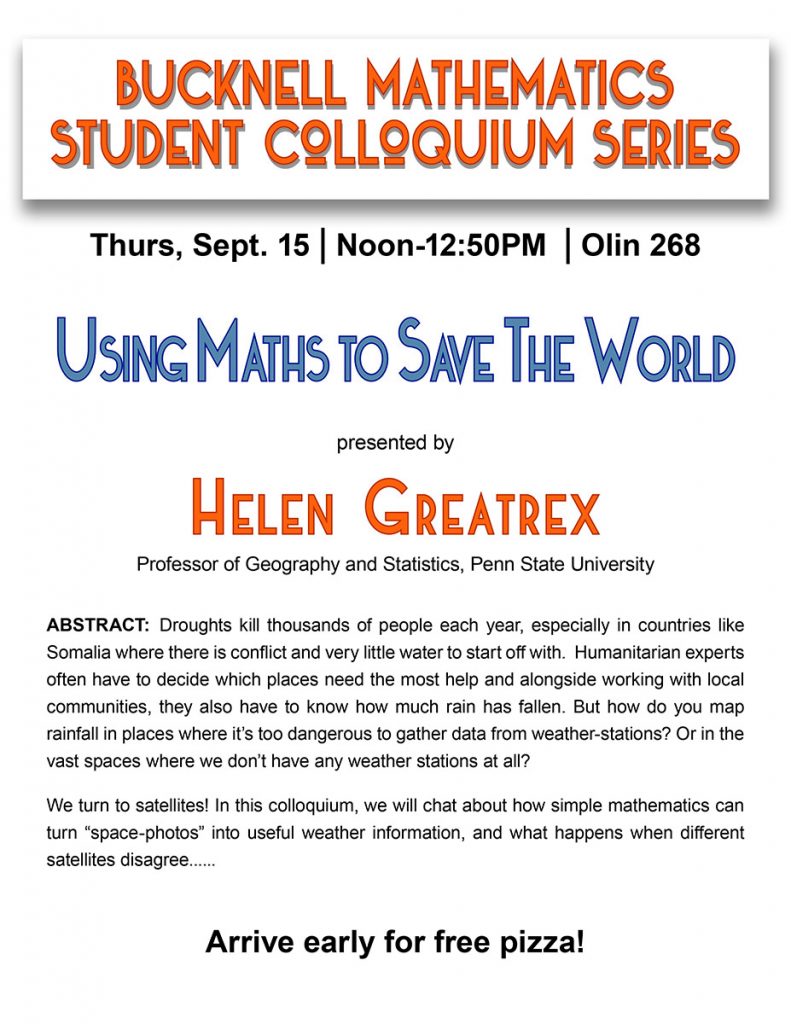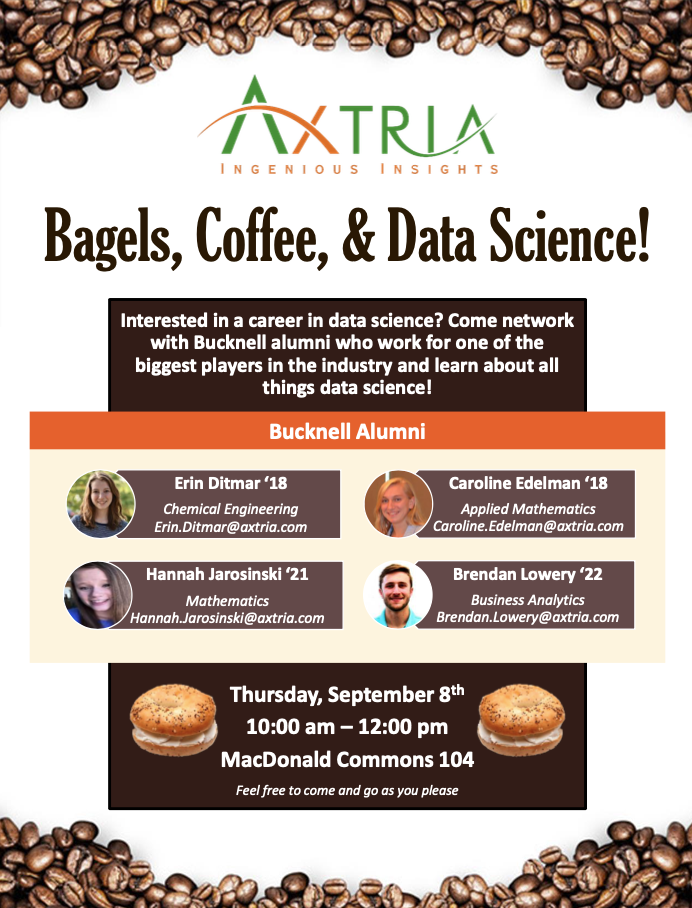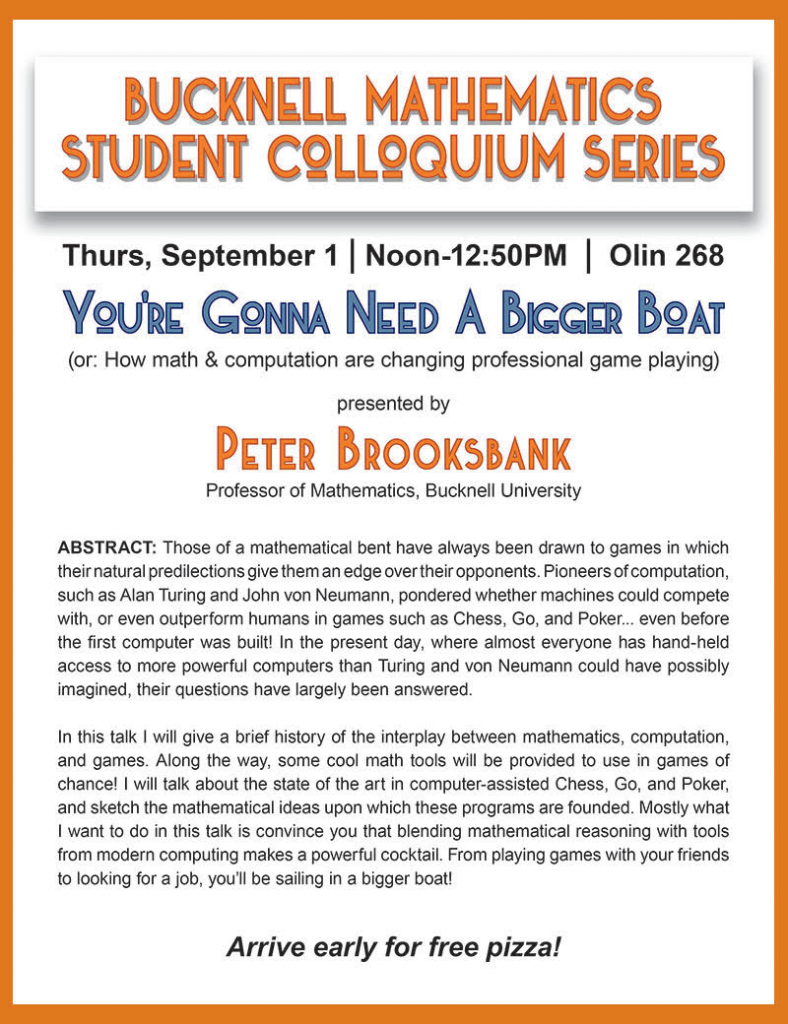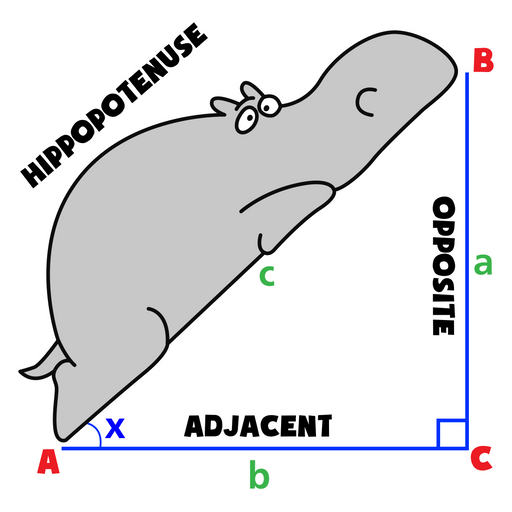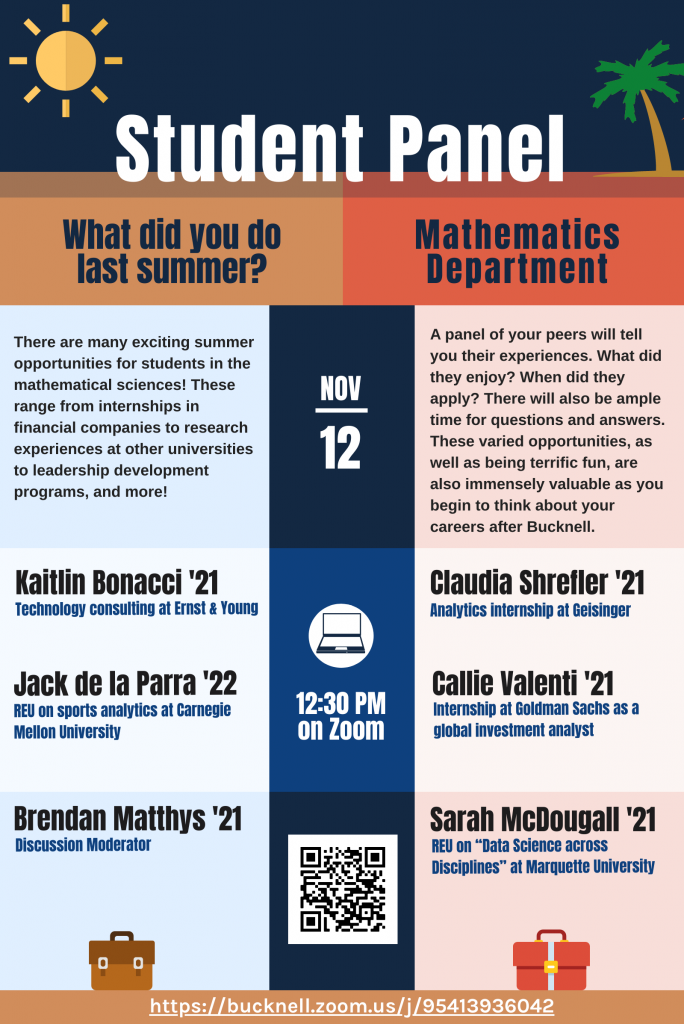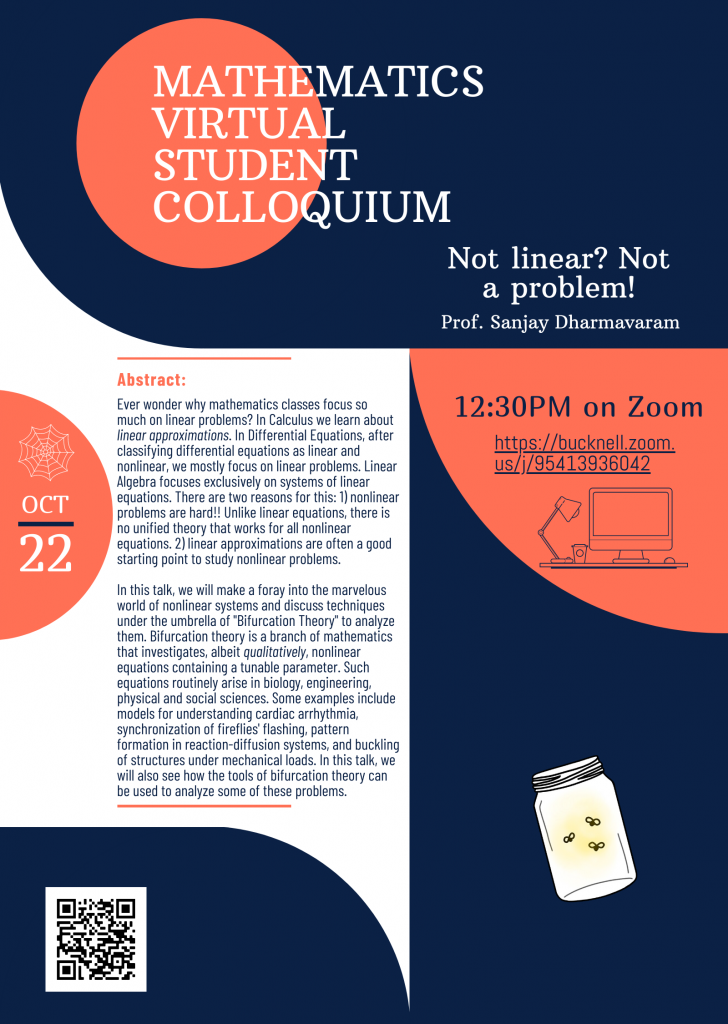BUCKNELL MATHEMATICS STUDENT COLLOQUIUM SERIES
Thurs, October 27 | Noon-12:50PM | Olin 268
What did you do last summer?
- Moderated by Kelly Karpovich (2 internships: Complete Actuarial Solutions Company and The Talent Studios)
with panelists - Lizzi Bianchine (internship @ Johnson and Johnson)
- Georgia Corbett (research @Bucknell w/ Professor Bickel)
- Jack Joseph (internship @ Pepsi)
- Michael Perez Palapa (REU)
ABSTRACT: There are many exciting summer opportunities for students in the mathematical sciences! These range from internships in financial companies to research experiences at other universities to leadership development programs. In this week’s colloquium, a panel of your peers will tell you their experiences. What did they enjoy about their experiences? When did they apply? There will also be ample time for questions and answers. These varied opportunities, as well as being terrific fun, are also immensely valuable as you begin to think about your careers after Bucknell.
Arrive early for free pizza! (BYO beverage)
